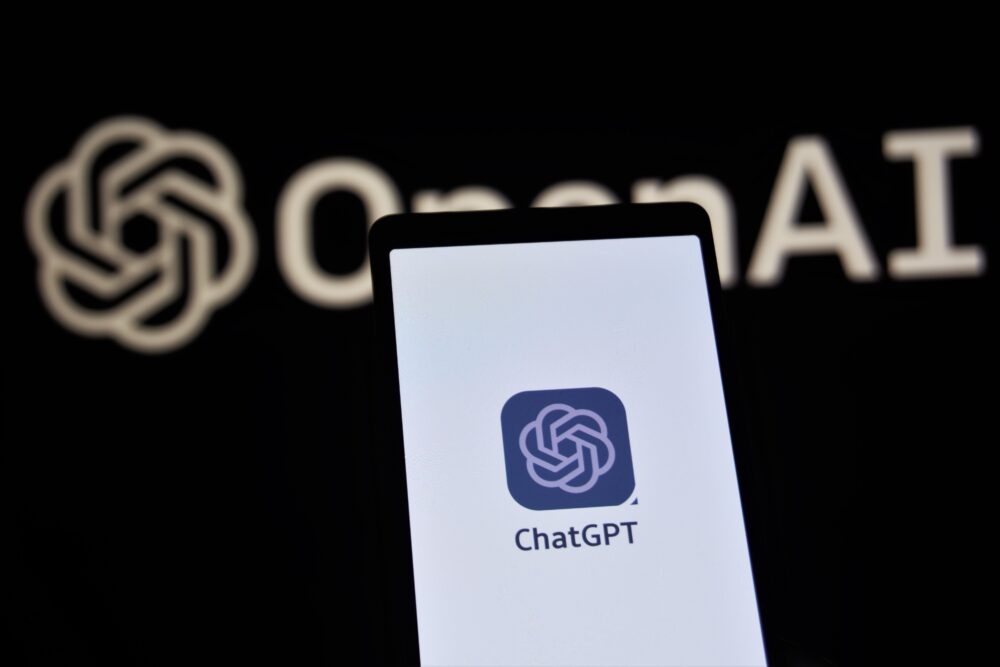
Artificial Intelligence (AI) will change the world forever. And it’s going to happen at a speed we’ve never seen before.
From manufacturing and customer service to healthcare and finance, AI has the potential to transform every sector. It will change everything we know and understand about work, including how we approach it.
One of the most noticeable changes brought about by AI is the automation of repetitive tasks. Jobs that involve manual data entry, data processing or rule-based decision-making are being increasingly handled by AI algorithms and Robotic Process Automation (RPA). This automation frees up people to focus on more complex and creative tasks that require critical thinking, problem-solving and empathy.
AI is not limited to just task automation though. It can also change what people are capable of and enhance productivity. For example, in healthcare AI-powered systems can assist doctors in diagnosing diseases by analysing vast amounts of medical data, including patient records, medical images and research papers. This collaboration between human expertise and AI algorithms leads to more accurate diagnoses, personalised treatment plans and improved patient outcomes.
AI is also revolutionising the way organisations analyse data. In the world of spend analytics, AI algorithms can process massive volumes of financial data by identifying spending patterns, detecting anomalies and generating insights in real-time. This level of analysis was previously unattainable using traditional methods.
AI-powered spend analytics enables organisations to make better data-driven decisions, optimise procurement processes, identify cost-saving opportunities, and enhance financial performance in ways that haven’t been possible before.
Changing the dial in what humans do
What was snake oil for many businesses a few years ago is now becoming a reality. At AdviseInc, we’re investing heavily in AI with some positive results. By using AI, we are harnessing the extensive classification data accumulated over the past nine years to enhance the way it’s used and classify more data. Through rapid, real-time data processing, AI enables the automation of data classification and cleansing.
The future of work with AI is not about people being replaced by machines though; it’s about collaborating with machines to achieve better outcomes. This shift allows people to develop new skill sets and explore new career paths.
The path forward: collaboration and reskilling
However, the transformation brought about by AI also poses challenges that need to be addressed.
There are concerns about job displacement and the need for upskilling or reskilling the workforce to adapt to the changing demands of the AI-powered era. Organisations, educational institutions and governments must work together to provide opportunities for retraining programs, lifelong learning and support systems that empower individuals to thrive in the AI-driven workplace. The NHS has much to benefit from AI if it can equip the workforce with the necessary skills to harness AI effectively. But we’re going to need cross-functional teams of data scientists, procurement specialists, clinicians and administrators to do this.
There are also ethical considerations surrounding AI adoption and usage. These will be crucial as AI algorithms become more sophisticated to ensure transparency, fairness and accountability in decision-making. Bias detection and mitigation, data privacy protection and establishing responsible AI governance frameworks are essential to build trust and ensure the ethical use of AI.
So how is this going to affect procurement in healthcare and more specifically analysing spend data?
The changing landscape of healthcare procurement
Healthcare procurement directly impacts patient care, operational efficiency and financial sustainability. Traditional procurement processes in the sector often suffer from manual inefficiencies, data silos, and limited visibility into spend patterns but AI-powered solutions can and will enhance procurement practices by automating more data analysis.
Spend analytics, which is a vital part of healthcare procurement, enables organisations to gain visibility into spending patterns, identify cost-saving opportunities and make informed decisions. In the future, AI-driven spend analytics will help near real-time data processing, automated data cleansing/classification, predictive analytics, and anomaly detection. This could include optimising inventory management, reducing costs through supplier consolidation or enhancing compliance monitoring.
AI can also optimise supplier relationships and streamline supply chain management by assessing performance metrics, tracking market trends and predicting supplier risks. By using AI to manage suppliers, healthcare organisations can ensure a robust supply chain, mitigate disruptions and forge better/more strategic partnerships.
Generative AI applications, such as ChatGPT and Bard, can also be used by procurement teams to help them effectively identify and prevent fraudulent activities. By analysing large amounts of data, they can identify anomalies indicating fraudulent activity. This can help procurement teams detect and prevent fraud before it happens. For example, we’ve trained ChatGPT-style software on our own large models of data. By telling it what ‘good data’ looks like we can train it to find similar patterns in new data.
The paradigm shift
AI is not just another technological advancement; it is a paradigm shift that will redefine the future of work.
The key>lies in understanding that AI is a tool that complements human abilities, enabling us to focus on higher-level tasks and achieve greater success. By harnessing the power of AI responsibly, we can shape a future where work is more fulfilling, creative and impactful.
In healthcare and procurement, we need to embrace the possibilities that AI brings and build a future where people and machines work together to drive improved value and more efficient and effective patient outcomes.
